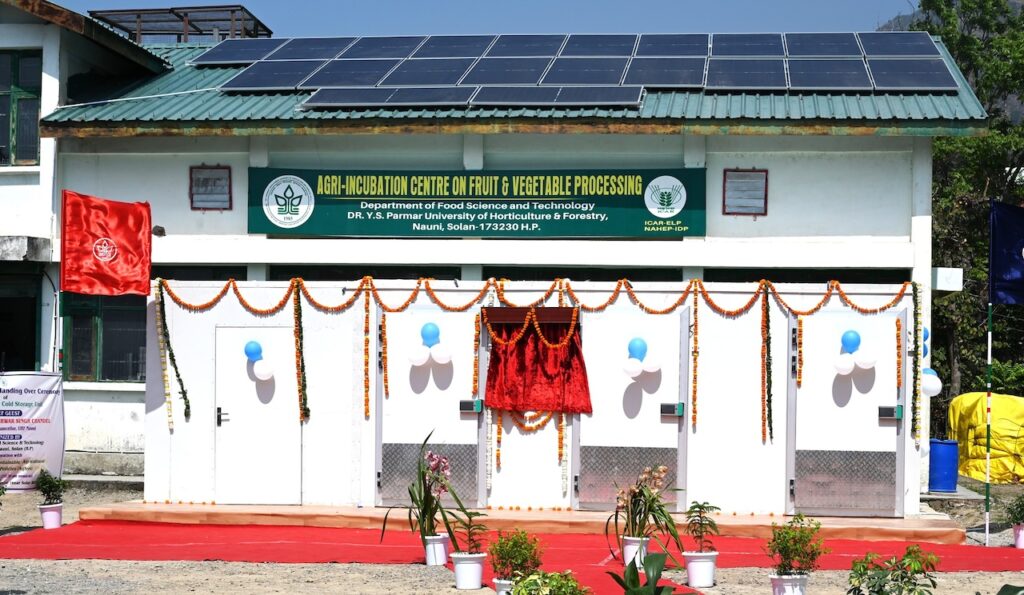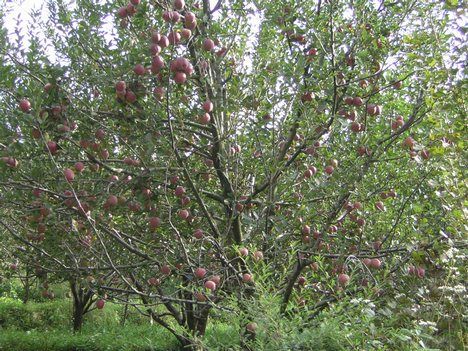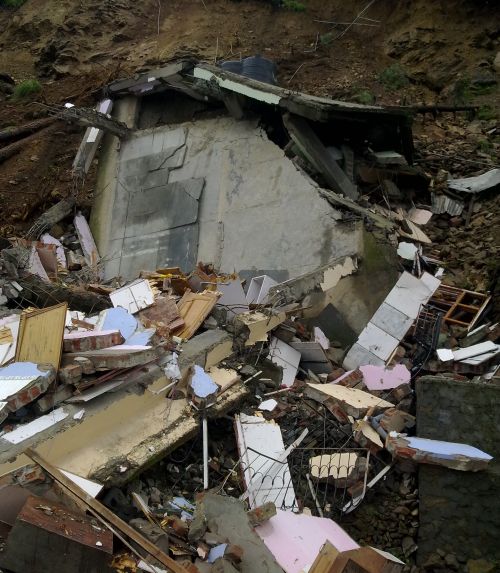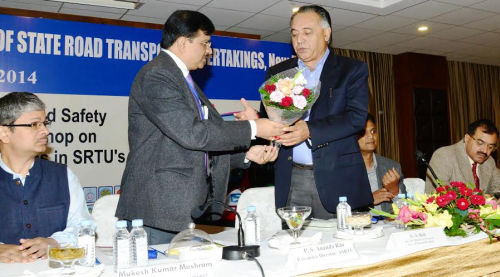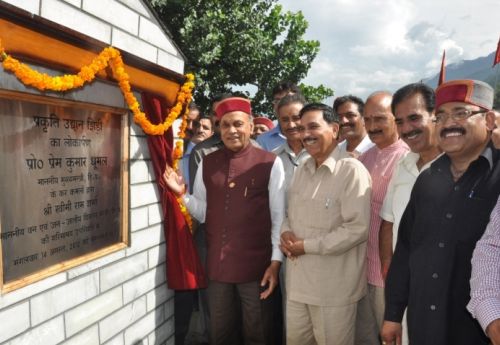Nauni/Solan – In a move to strengthen sustainable post-harvest practices and reduce crop losses, an AI-enabled, solar-powered modular cold storage facility was inaugurated at the Department of Food Science and Technology, Dr. YS Parmar University of Horticulture and Forestry, Nauni, on Friday.
The state-of-the-art facility was inaugurated by Prof. Rajeshwar Singh Chandel, Vice-Chancellor of the University, and developed in collaboration with the Global Programme on Sustainable Agricultural Systems and Policies (AgSys), GIZ India. The technical setup was executed by Cool Crops Pvt. Ltd., with scientific input from university researchers.
Designed to support multi-crop storage throughout the year, the unit is built with three independent chambers, each with custom temperature and humidity control. It can store up to 12 metric tonnes of produce and is equipped with AI-enabled remote monitoring, allowing real-time data tracking for optimal storage conditions.
The cold storage primarily runs on solar energy, with thermal (2–3 hours) and lithium-ion battery backups (5–6 hours) ensuring continued operation in low-sunlight conditions. Additionally, the unit includes grid connectivity for reliable performance during monsoons or power deficits.
Speaking at the event, Prof. Chandel said the cold storage marks a significant step in minimizing post-harvest losses, especially in hill regions where transportation and storage challenges persist. He added, “This facility represents a blend of sustainable energy and modern agri-technology. It’s a model that can benefit farmers in remote areas with limited access to conventional infrastructure.”
Kaethe Brakhan, Project Director of AgSys, highlighted that the programme aims to promote sustainable farming through field innovations and improved policy frameworks. Cold storage is one such step toward strengthening rural agriculture ecosystems.
Earlier, Dr. Sanjeev Chauhan, Director of Research, welcomed the GIZ delegation and presented ongoing collaborative efforts between the university and AgSys. Shashi Kumar, Team Leader of the Apple Value Chain, emphasized the cold storage’s potential in enhancing the quality and value of apple and other perishable produce.
Initially, the facility will be used to collect scientific data on crop storage conditions. Following its evaluation phase, it will be opened for commercial and community use, with priority given to Self-Help Groups (SHGs), Farmer Producer Organizations (FPOs), NGOs, and small and marginal farmers. The unit’s modular, off-grid design makes it ideal for deployment in remote or mountainous areas lacking reliable power access.


